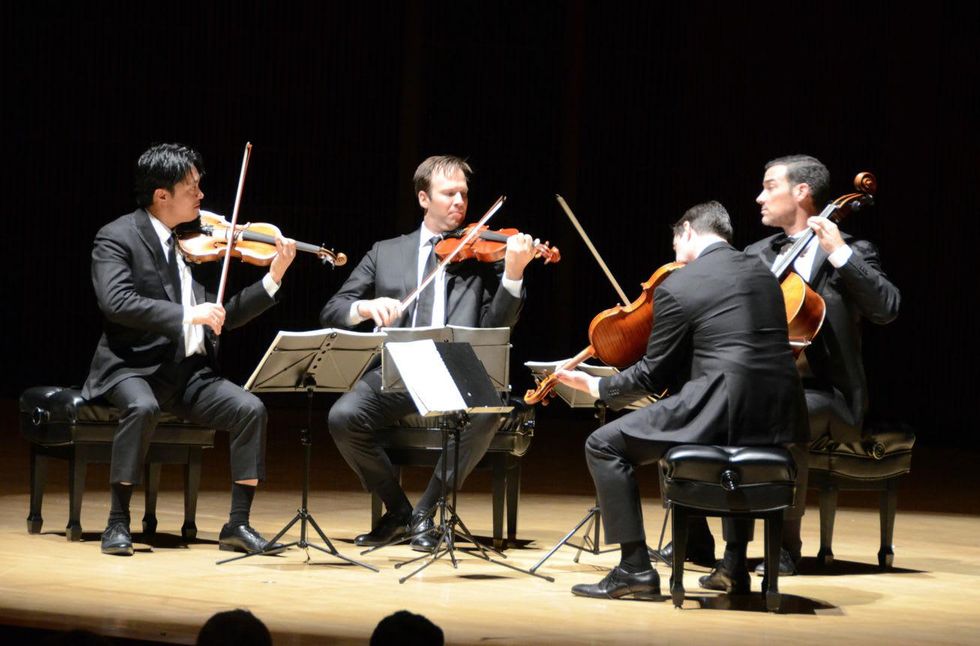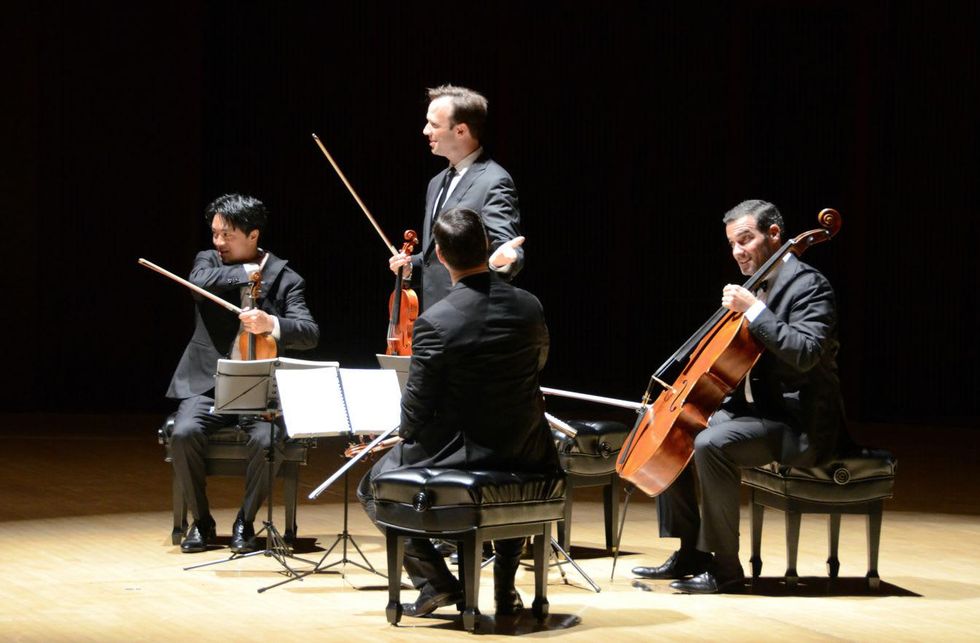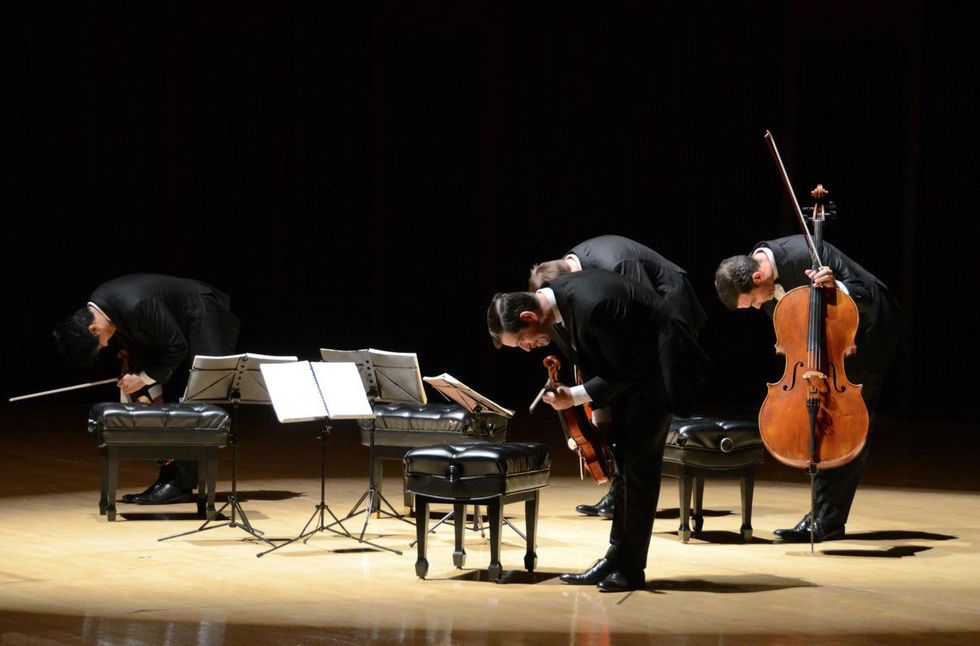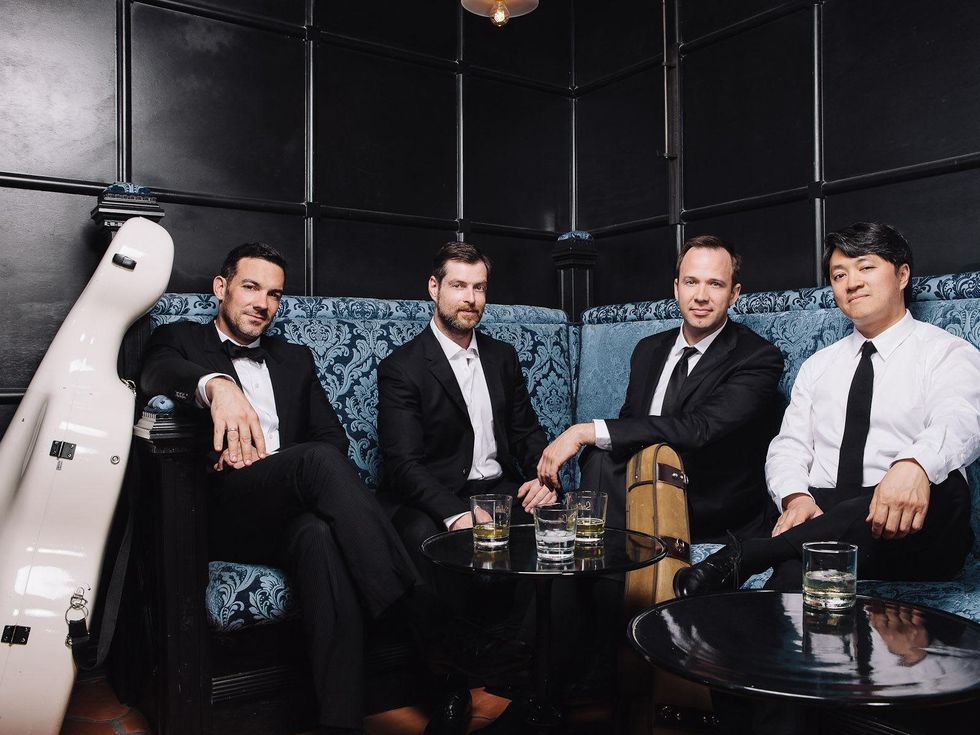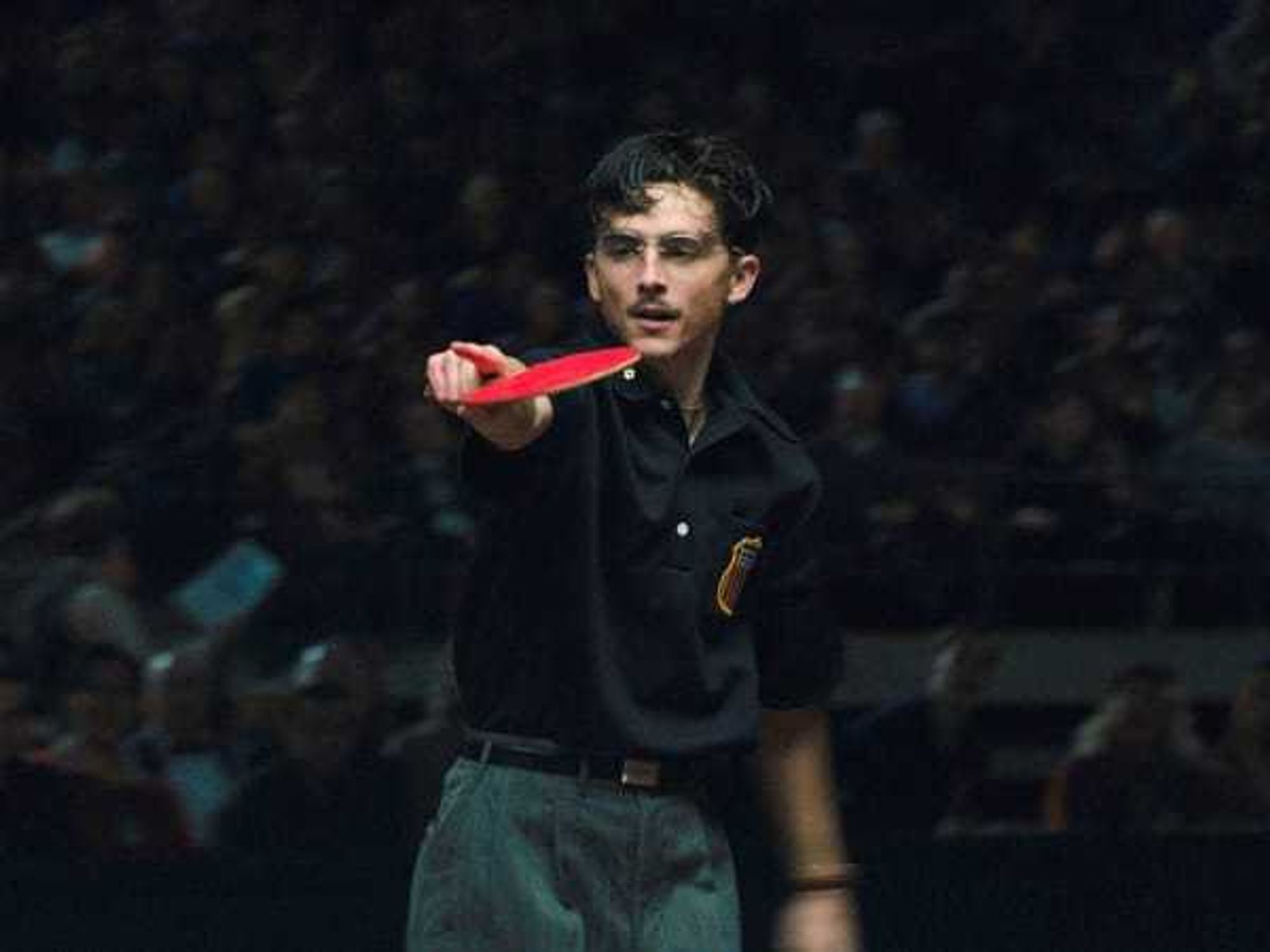The Review is In
A warm musical gift: This quartet's virile thwacks give it a real chance to become a Houston concert favorite
As if swarmed by a colony of bees that buzzed with intent while on a mission to catch a target, the rising chromatic storm that opens Schubert's Quartet in C Minor No. 12 (Quartettsatz) served as a teaser of what the Miró Quartet had in mind for the overture performance of Houston Friends of Chamber Music's 2013-14 season Tuesday night at the Shepherd School of Music.
Before long, the menacing insects had morphed into loving, singing creatures as first violinist Daniel Ching's lyricism shined with seamless lines that soared despite awkward intervals. Listening to the unfinished composition, written eight years before Schubert passed, recalled a transitional time in classical music's development. Someone obviously didn't inform the Austrian composer that the sturm und drang movement had run its course four decades before this 1820s score.
Schubert is either exquisite of boring, depending on whether the performers are committed to being faithful to articulations, accents, sforzandos and swells of dynamic hair pins (a cresscendo followed by a decrescendo) that sprinkle the partiture. When listeners stop paying attention to the effects and focus on the experience of journeying along the many unexpected mood shifts, it's an indication that something remarkable has taken place.
Many satisfying sighs were heard from the perceptive concert goers during changes in textural colors.
The Miró Quartet, in residence at the University of Texas at Austin, sure made its host proud. Given that Houston Friends of Chamber Music is seeking an ongoing relationship with an ensemble to replace the recently retired Tokyo String Quartet — which appeared 39 times since 1976 as part of the series, including many season opening and closing concerts — the volunteer board of the presenting organization was poring over the audience reaction during this high-stakes performance.
The intimate musical gift from the Miró was received with open hearts, as if a warm blanket cocooned the audience with nothing but sincere affection.
No sweat for the Austin-based musicians, who appeared comfortable digging into the music in the reverberant hall. For violinist William Fedkenheuer, who had served as usher and house manager during his undergraduate studies at the Shepherd School of Music from 1994-98, the homecoming was a significant occasion that proved musical dreams can be realized with hard work and determination — plus a positive attitude.
Classical audiences welcome works of American Minimalist Philip Glass with apprehension. One gentleman reiterated the composer's name as a joke that mimicked the repetitive style. An introduction from violist John Largess offered listening instructions that suggested interacting with the piece as a stream of consciousness adventure.
But the cinematic (pseudo-Romantic at times) aesthetic of Glass' String Quartet No. 5 (1991), the most playful of the set, didn't need a prologue. The Miró's interpretation provided a collage in which listeners could immerse themselves in active and vivid visual imagery. Precise dance-like asymmetric meters interspersed with tender timbers and virile open string thwacks encouraged swaying from moments of being mindful of the music to individual introspection (perhaps, it's best enjoyed after a hit of acid?).
As for the concert closer, Beethoven's String Quartet in F Major, Op. 59 No. 1 "Razumovsky," the meaty chamber work was an opportunity for cellist Joshua Gindele to display his expansive expressive abilities, the opening gesture clearing the way for luscious bucolic phrases that escort higher tessitura passages in the fiddle's stratosphere.
Beethoven's quartet was executed with a type of grit that some would say traveled beyond the composer's generally accepted performance practice. These are probably the same type of folks that lift their pinky up when drinking tea and say tomahto instead of tomato. Though at times passion and strength resulted in an unclear rhythmical pulse and intonation slips, the excitement carried through to bring the nearly sold-out house to its feet for more.
Fittingly, the encore was the Cavatina from Beethoven's String Quartet No. 13, Op. 130, the farewell selection that saw violinist Peter Oundjian retire from the Tokyo String Quartet in his final Houston concert. The intimate musical gift from the Miró was received with open hearts, as if a warm blanket cocooned the audience with nothing but sincere affection.
Whether Houston Friends of Chamber Music has found its signature ensemble is up in the air, although for certain the Miró will be back — sooner rather than later.
